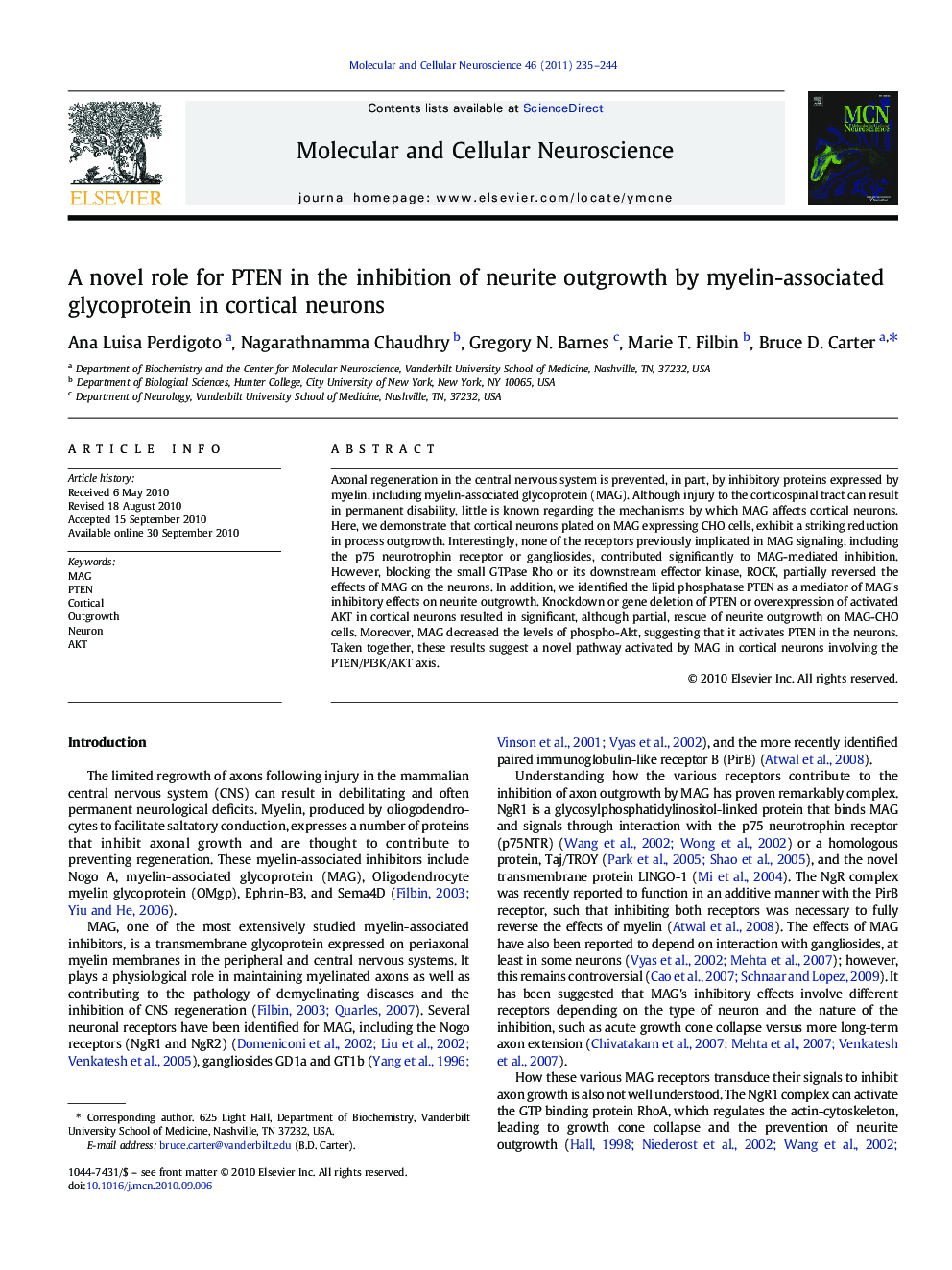| Article ID | Journal | Published Year | Pages | File Type |
|---|---|---|---|---|
| 10956640 | Molecular and Cellular Neuroscience | 2011 | 10 Pages |
Abstract
Axonal regeneration in the central nervous system is prevented, in part, by inhibitory proteins expressed by myelin, including myelin-associated glycoprotein (MAG). Although injury to the corticospinal tract can result in permanent disability, little is known regarding the mechanisms by which MAG affects cortical neurons. Here, we demonstrate that cortical neurons plated on MAG expressing CHO cells, exhibit a striking reduction in process outgrowth. Interestingly, none of the receptors previously implicated in MAG signaling, including the p75 neurotrophin receptor or gangliosides, contributed significantly to MAG-mediated inhibition. However, blocking the small GTPase Rho or its downstream effector kinase, ROCK, partially reversed the effects of MAG on the neurons. In addition, we identified the lipid phosphatase PTEN as a mediator of MAG's inhibitory effects on neurite outgrowth. Knockdown or gene deletion of PTEN or overexpression of activated AKT in cortical neurons resulted in significant, although partial, rescue of neurite outgrowth on MAG-CHO cells. Moreover, MAG decreased the levels of phospho-Akt, suggesting that it activates PTEN in the neurons. Taken together, these results suggest a novel pathway activated by MAG in cortical neurons involving the PTEN/PI3K/AKT axis.
Related Topics
Life Sciences
Biochemistry, Genetics and Molecular Biology
Cell Biology
Authors
Ana Luisa Perdigoto, Nagarathnamma Chaudhry, Gregory N. Barnes, Marie T. Filbin, Bruce D. Carter,
